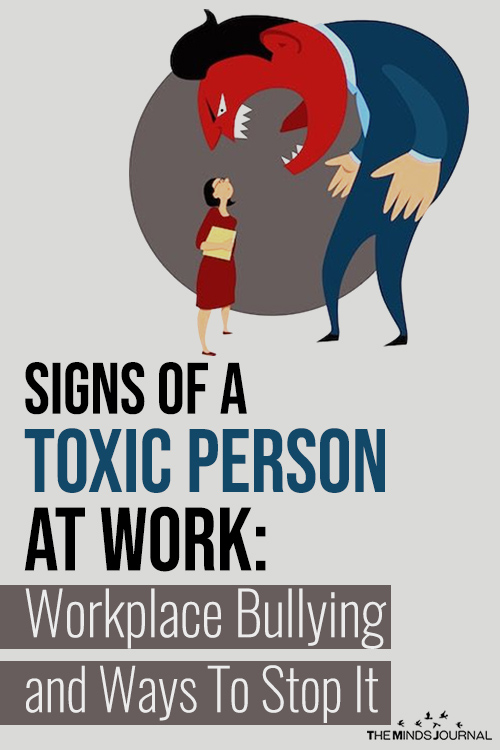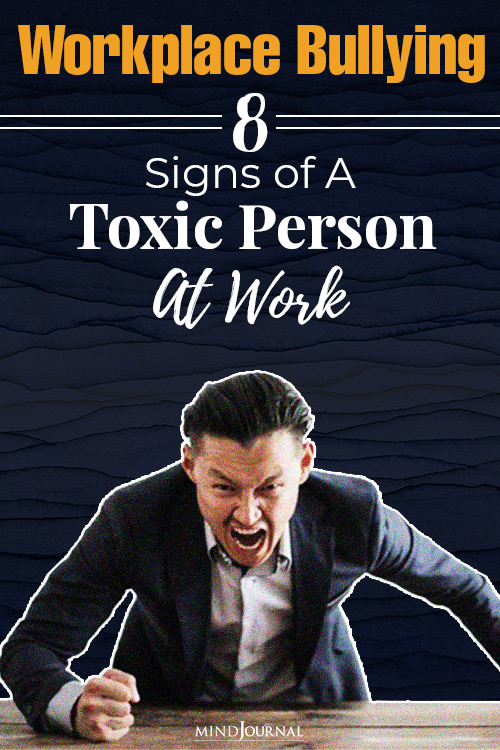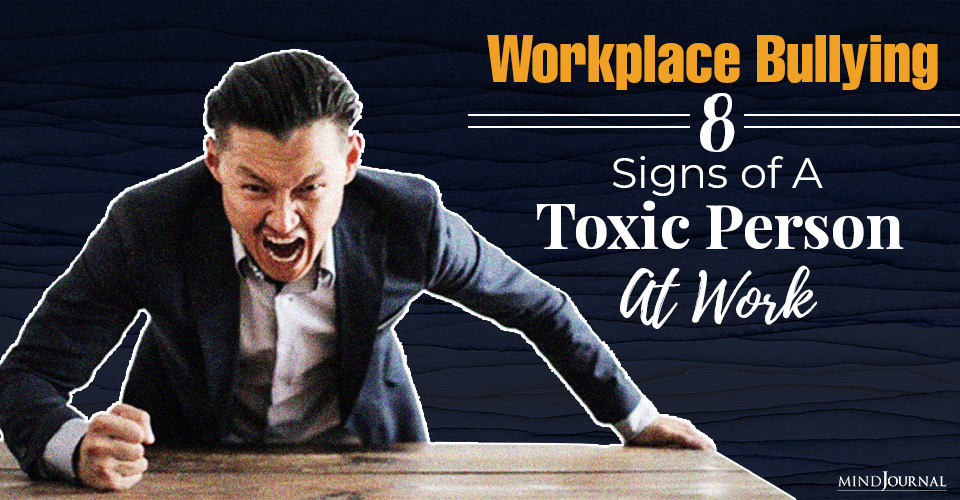Are you a victim of workplace bullying and is your workplace bully actually a narcissist on a power trip? Workplace bullying can have a severe impact on your mental health, if not dealt with at the right time.
Bullying in the workplace is an unfortunate situation, but it does happen. However, it’s possible that your simple case of “workplace bullying” is actually narcissism at play.
No one likes the idea of workplace harassment; in a perfect world, everyone would get along together and there would be no need for conflict resolution in the workplace.
However, learning effective communication in the workplace with your fellow employees and the difference between simple bad behavior and actual signs of narcissism from a workplace “bully” will help you determine if a situation calls for something more drastic than a “talking to” for the potential narcissist in question.
Related: Toxic Coworkers: How To Deal With The 7 Most Dangerous Work Personalities
It is widely accepted that knowledge is power. Therefore, it’s best to start by raising your awareness of the nature of a “bully” and what role narcissism plays in the workplace.
What is narcissism, and how can you tell the difference between that and bad behavior when it comes to workplace bullying?
According to the American Psychiatric Association, it’s a personality disorder characterized by the following narcissism traits:
1. An exaggerated sense of self-importance.
2. A belief that they are special and expect people to defer to them.
3. Expects recognition without achievements that warrant it.
4. A belief that they are superior and can only be understood to be equally superior individuals.
5. A need for continuous admiration.
6. Possesses a sense of entitlement and expects special considerations and accommodations.
7. Lacks the ability or willingness to recognize the needs or feelings of others.
8. Demonstrates an arrogant, superior manner.
They often act with the demeanor of someone who is super self-secure when in actuality, they are in a constant battle with their fragile self-esteem. What actual confidence they have is superficial and cannot withstand scrutiny, let alone criticism. Their reaction to criticism goes beyond the conventional human reaction of defensiveness and anger.
It triggers a need for revenge within them. They personify the adage: You are either with me or against me.
It is vital that you understand the secret weapons of a narcissist. They can possess above average IQs and are usually very skilled at what they do.
They count on making themselves indispensable so that you will hesitate to definitively address their disruptive behavior because you require their knowledge and skills to help the department operate smoothly.
They view information as power. Therefore, they’re usually well informed and like to volunteer to be on committees they view as powerful or at the center of things.
Related: Toxic Leaders: The Toxic Trinity That Takes Leaders Down
Perhaps the most unsettling tool in the narcissist’s arsenal is that they possess the following predator characteristics:
- Attractive.
- Charming (When they feel it is a useful tool).
- Seductive (They have the ability to tell you what you want to hear and make you believe that they’re truly sincere in their desire to “get it right” if you give them one more chance).
By comparison, the characteristics of a chronically uncivil person can be irritating, immature, and disruptive, but it does not leave the target of their behavior threatened, humiliated, or feeling vulnerable and unsafe.
Examples of chronically uncivil behavior include but are not limited to:
- Recurrently late for work, report, relieving others.
- Poor boundaries with personal life and challenges.
- Chronic complainer regardless of the issue.
- Inappropriate body language at huddles and meetings.
- Chronic cancellation of meetings.
- Habitually interrupting or talking over someone.
However, if your bully is actually a narcissist, they’ll rarely follow the acceptable chain of command when they have an idea to share or a complaint to register.
They do not view the people immediately above them as special or worthy enough to appreciate their input. Customarily, they prefer to go directly to the top regardless of how it should be structured.
Unfortunately, they will only take you seriously when you employ a disciplinary process. The uncivil employee may occasionally leapfrog the chain of command, but they will stop if the appropriate structure is restated.
It is unusual for an individual who engages in disruptive narcissistic behavior to self-correct without intervention by leadership. Coaching and training aimed at affecting and adjusting behavior take time and patience.
However, sustainable change will not happen unless the disruptive person can actually acknowledge that his or her actions are inappropriate and potentially harmful.
Furthermore, this acknowledgment must be followed by clear evidence that the desired changes in behavior can be sustained.
Uncivil individuals have the ability to acknowledge a shortcoming and make an active choice to adopt a better way of conducting themselves at work. Change may not happen overnight but it can happen.
Narcissists may be unable or unwilling to make this change in their workplace behavior because they lack this ability. Narcissists are challenged by any boundaries and are compelled to push back rather than admit fault.
Related: Six Tips for Speaking Up Against Bad Behavior
Since they lack the insight necessary to identify the need for a change, they’re unable to sustain any claim they make to embrace a better way. A bully’s behavior is predictable and cyclical, and it’s important to identify if they’re making a significant attempt to change or if they’re set in their ways.
It could be the difference between someone behaving poorly and a narcissist in the workplace.
Written by Phyllis Quinlan Originally appeared in YourTango









